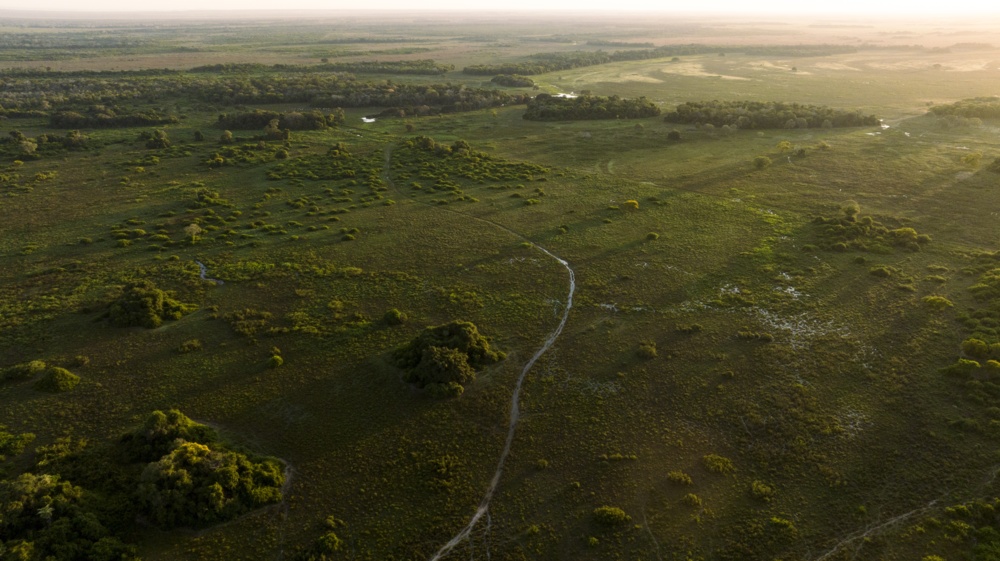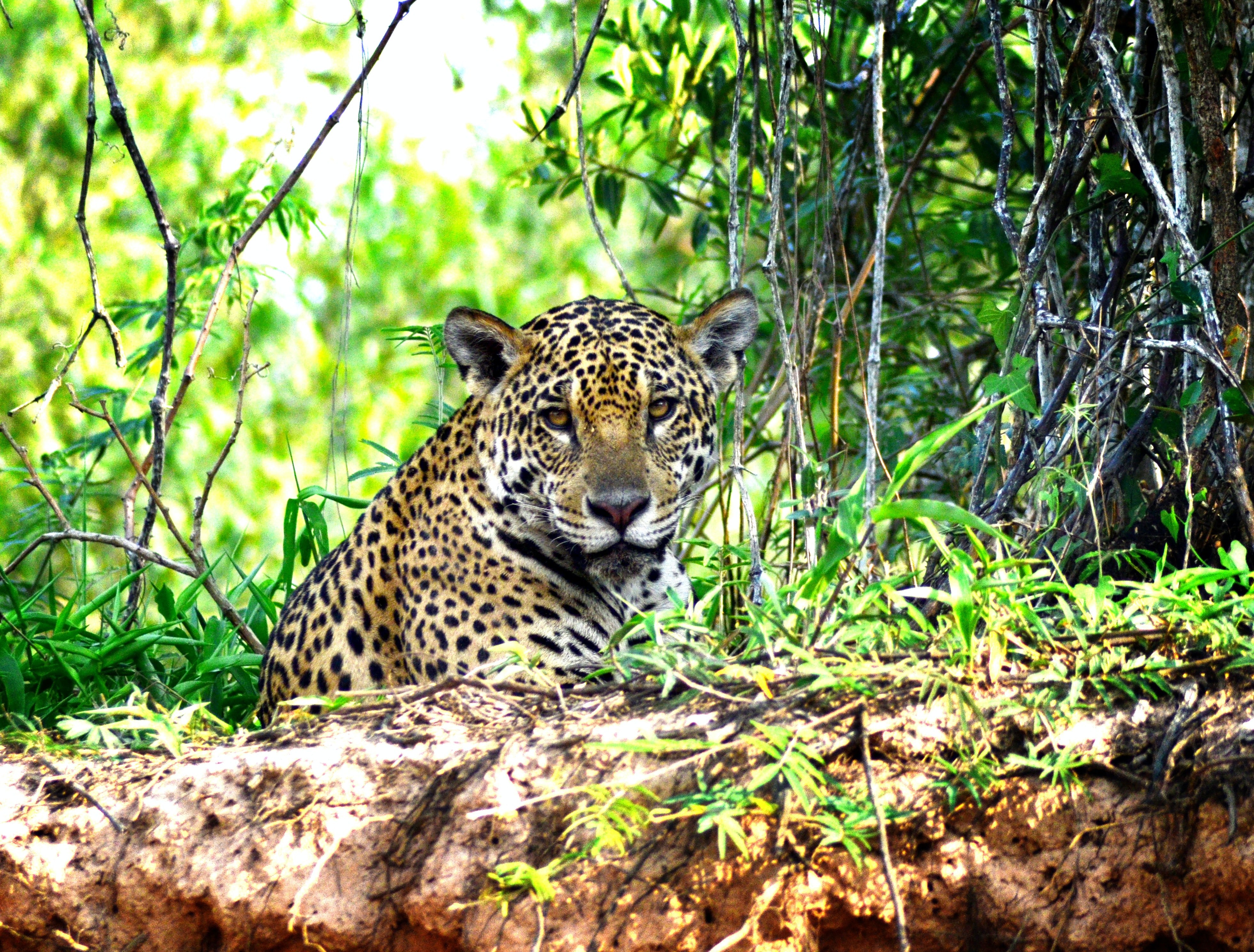
EJF's report reveals systemic labour abuses and environmental destruction in Brazil's cattle ranching industry linked to EU supply chains
Slave labour is persistent in the heart of Brazil's cattle ranching industry. A new EJF investigation highlights the intersections between the cattle ranching industry, environmental destruction, and human rights abuses, with a particular focus on the Pantanal biome – a vital wetland ecosystem of global significance. The analysis uncovers trade links between entities involved in slave labour, JBS, which is the world's largest meat producer, and EU markets. Cattle ranching, the primary economic sector in the Pantanal, poses a dual threat: it's both the leading threat to biodiversity within the biome and a hotbed for labour exploitation.
“The Pantanal is now the region where we find the most cases of degrading work in Mato Grosso do Sul” - Brazilian Public Labour Prosecutor
Background
Brazil's cattle ranching industry is a major source of slave labour, accounting for almost half (46%) of detected cases in the country over the last 30 years. In 2003, the Brazilian government published its first so-called ‘Dirty List’, naming employers that have subjected workers to conditions analogous to slavery. Since 2017, 31 individuals/companies with cattle ranches in the states of Mato Grosso and Mato Grosso do Sul (where the Pantanal is located) have appeared on this ‘Dirty List,’ with 139 workers rescued, including 18 cases within the Pantanal biome.
Key findings
EJF’s new investigation uncovers trade links involving 11 entities associated with slave labour and JBS between 2017 and 2023. Notably, the investigations revealed that two ranches were approved for export to the EU but have appeared on the Dirty List since 2017, potentially linking beef and other cattle-related products sent to Europe to sites identified for practices of slave labour.
“I don’t want to mess with these types [...] they are not good people. I can’t say much about what I’ve been through. [...] I try to avoid messing with them. Ranch owners are very vindictive” - Ranch worker
Survivors describe labour exploitation as 'common' in the region. Indeed, the prevalence of slave labour in the cattle-ranching sector is likely much higher than current datasets indicate. A lack of government inspections means many more cases may be going undetected, while opaque supply chains allow forced labour products and practices to perpetuate, exacerbating forced labour as a systemic issue in the sector.
The opaque nature of supply chains in this sector enables products tainted by labour abuses from indirect suppliers to effectively be ‘laundered’ at approved facilities further down the chain. This opens the door for cattle-related products stemming from forced labour conditions to make their way to EU markets unhindered.
Source: Environmental Justice Foundation
EU linkages
In 2022, the European Union imported 162,748 tonnes of cattle-related products from Brazil, constituting 21.5% of total imports valued at €757.2 million. Significantly, Italy, the Netherlands, Spain, and Germany collectively received 92.8% of EU imports from JBS slaughterhouses in Mato Grosso and Mato Grosso do Sul, posing a considerable risk that products associated with human rights abuses were and continue to be present in these countries.
Systemic forced labour abuses
Through this report, EJF provides advice on how a strong European Regulation prohibiting products made with forced labour (the Forced Labour Regulation) and the Corporate Sustainability Due Diligence Directive (CSDDD) can be used to end this exploitation.
Steve Trent, EJF CEO and Founder, said: "Cattle ranches in the Brazilian Pantanal and the testimonies of forced labour victims underscore the urgent need and critical opportunity for the EU to pass and enforce a robust EU Forced Labour Regulation. We need transparency to eliminate human rights and environmental abuses from EU value chains. Two key elements should be to include market bans on groups of products associated with systemic forced labour and engaging in structured dialogues with implicated third countries to enhance their labour standards."
“It's absolutely vital that the EU uses its leverage as the globe's biggest trading bloc to effect real change. By giving this legislation teeth, EU lawmakers can take it from superficial to truly transformative.”
ENDS
Notes to editor
The Pantanal biome, a wetland that extends across Brazil, Paraguay, and Bolivia, covering a total area of approximately 16 million hectares, critical to biodiversity, faces threats due to cattle ranching intensification. With 93% of its land on the Brazilian side held as private lands, 80% of which is dedicated to cattle ranching. Cattle ranching is a key economic sector in Mato Grosso and Mato Grosso do Sul, which together account for 22.5% of the total cattle herd in Brazil. In both states, where Pantanal is located, 44% of identified slave labour cases occurred in the cattle ranching sector.
Between 1995 and 2022, 2,023 separate cases of slave labour were detected within the industry, with 17,444 workers rescued. One victim had worked at a property for 20 years and had never been paid a salary. In some cases, workers were made to sleep in inhospitable conditions with makeshift beds, a lack of storage facilities, and a lack of windows or doors, offering little security or shelter.
Brazil's cattle industry, fueled by global demand, is dominated by a handful of multinational giants. The country holds the top spot in exporting cattle-related products to the EU, which, in turn, is a major investor in Brazil. Notably, three Pantanal properties—Fazenda Boqueirão, Fazenda Canadá, and Fazenda Nova Paradouro—show recent patterns of deforestation and slave labour. This underscores the alarming connection between environmental degradation and human rights violations in the Pantanal, a correlation supported by Brazil’s Labour Prosecutor’s Office.
In this report, slave labour is used to refer to situations defined in Article 149 of the Brazilian Penal Code in which working conditions are deemed “analogous to slavery”, i.e. where any of the following elements are present: forced labour, exhaustive working hours, degrading conditions and/or debt bondage.
EJF works internationally to inform policy and drive systemic, durable reforms to protect our environment and defend human rights. We investigate and expose abuses and support environmental defenders, Indigenous peoples, communities, and independent journalists on the frontlines of environmental injustice. Our campaigns aim to secure peaceful, equitable, and sustainable futures.
Our investigators, researchers, filmmakers, and campaigners work with grassroots partners and environmental defenders across the globe. Our work to secure environmental justice aims to protect our global climate, ocean, forests, and wildlife and defend basic human rights. For more information or to speak to one of our expert analysts, please contact media@ejfoundation.org.
SIGN UP FOR OUR EMAILS AND STAY UP TO DATE WITH EJF

